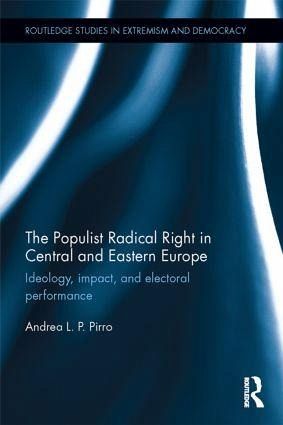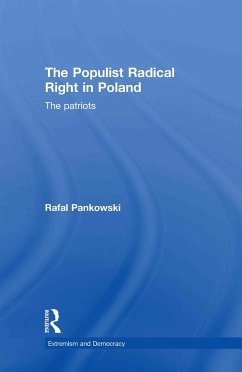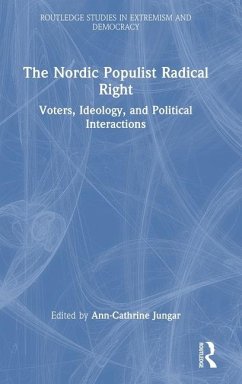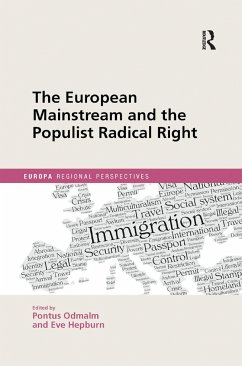
The Populist Radical Right in Central and Eastern Europe
Ideology, impact, and electoral performance
Versandkostenfrei!
Versandfertig in 1-2 Wochen
177,99 €
inkl. MwSt.
Weitere Ausgaben:

PAYBACK Punkte
89 °P sammeln!
Often neglected in the study of far right organisations, post-communist Europe recently witnessed the rise and fall of a number of populist radical right parties. The Populist Radical Right in Central and Eastern Europe is the first comparative study to focus on the ideology, impact, and electoral performance of this party family in the region. The book advances a series of arguments concerning the context and text of these parties, and systematically analyses the supply-side and demand-side of populist radical right politics. Whilst populist radical right parties in Central and Eastern Europe...
Often neglected in the study of far right organisations, post-communist Europe recently witnessed the rise and fall of a number of populist radical right parties. The Populist Radical Right in Central and Eastern Europe is the first comparative study to focus on the ideology, impact, and electoral performance of this party family in the region. The book advances a series of arguments concerning the context and text of these parties, and systematically analyses the supply-side and demand-side of populist radical right politics. Whilst populist radical right parties in Central and Eastern Europe maintain broad similarities with their West European counterparts, they come across as a distinct phenomenon worthy of study in their own right. Parties like Ataka (Bulgaria), Jobbik (Hungary), and the SNS (Slovakia) resort to historical legacies and contextual idiosyncrasies to frame their ideology; interact with other parties over a number of policy areas; and ultimately compete for public office on the basis of their nativist agenda. The book provides a novel framework for the analysis of different aspects of populist radical right politics, notably enhancing the understanding of this phenomenon by means of primary data such as personal interviews with party leaders and original expert surveys. Using the ideological features of these parties as an overarching analytical tool, this book is essential reading for students and scholars researching the far right, post-communist issues and European politics in general.













